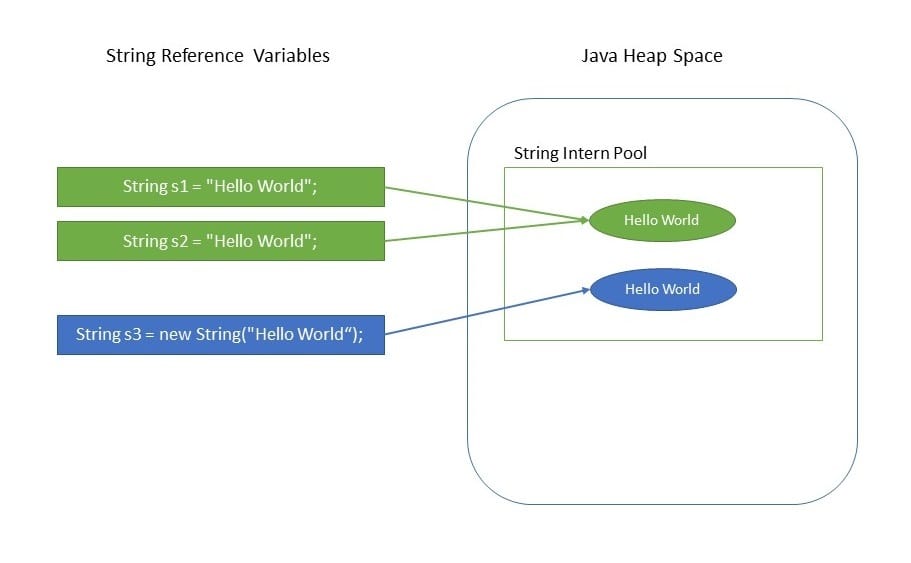Why Are Strings Immutable in Java? Key Reasons and Benefits Described
Why Are Strings Immutable in Java? Key Reasons and Benefits Described
Blog Article
Immutable Strings: A Trick Part in Ensuring Data Consistency and Reliability
In the realm of information management, the significance of unalterable strings can not be overstated. These unchanging sequences of personalities play a critical function in upholding the honesty and precision of info within systems. By keeping a state of immutability, data consistency is made certain, promoting a structure of reliability whereupon critical processes rely. The concept of unalterable strings transcends simple technicality; it is a linchpin in the complicated web of information administration. As we explore the benefits, execution strategies, and sensible applications of immutable strings, a more clear picture emerges of their crucial nature in guarding the digital landscape.
The Principle of Immutable Strings
Unalterable strings, a basic principle in shows, refer to strings that can not be changed as soon as they are created. In essence, when a string worth is designated, any type of procedure that shows up to modify the string in fact produces a new string. This immutability makes sure information uniformity and integrity in applications, as it stops unanticipated changes to the original data.
Advantages in Information Consistency

Information uniformity is essential in various elements of software development, consisting of database management, multi-threaded environments, and distributed systems (Why are strings immutable in Java?). Unalterable strings contribute substantially to accomplishing this consistency by preventing information corruption as a result of simultaneous access. In situations where multiple procedures or strings connect with the same data simultaneously, unalterable strings function as a protect against race problems and synchronization problems
In addition, the immutability of strings streamlines debugging and screening processes. With unalterable strings, developers can trust that when a string is established, it will certainly continue to be the same, making it easier to map the source of mistakes and making certain that test situations produce regular results. This dependability in data taking care of ultimately brings about more durable and stable applications.

Implementing Immutable Strings
Ensuring the immutability of strings calls for a thoughtful approach to their application in software growth. One vital technique is to design string courses in a manner that protects against modifications as soon as a string item is created. By making strings unalterable, developers can boost information uniformity and reliability in their applications.
To apply immutable strings effectively, programmers ought to prefer producing brand-new string items as opposed to customizing existing ones. This technique makes sure that when a string is assigned a worth, it can not be changed. Furthermore, any procedure that appears to change the string ought to develop a brand-new string with the desired modifications as opposed to altering the initial.
Furthermore, using immutable strings can streamline concurrency management in multi-threaded atmospheres. Since unalterable strings can not be changed after creation, they can be securely shared amongst several threads without the threat of data corruption.
Role in Integrity Assurance
In software application growth, the utilization of immutable strings plays a crucial function in making sure the dependability of data procedures. Immutable strings, once developed, can not be modified, making sure that the information they stand for continues to be regular throughout the application's execution. This immutability home provides a degree of assurance that the information Check This Out being refined will certainly not be inadvertently transformed, resulting in unforeseen outcomes or errors in the system.
By integrating unalterable strings into software style, programmers can boost the dependability of their applications by reducing the risks related to mutable data - Why are strings immutable in Java?. Immutable strings help in stopping information corruption or unintended alterations, which can be specifically crucial when handling sensitive information or when data stability is vital
In addition, making use of unalterable strings streamlines concurrent handling, as multiple strings can securely accessibility and share string data without the threat of one string altering the web content while another reads it. This facet contributes dramatically to the general dependability of the software application system, making sure foreseeable and regular habits in data handling procedures.
Applications and System Integration
The smooth integration of unalterable strings into various applications and systems is pivotal for making certain durable data uniformity and integrity across varied technological atmospheres - Why are strings immutable in Java?. Immutable strings play a crucial role in enhancing the honesty of data exchanges and communications within facility software application communities. By including unalterable strings right into applications, developers can alleviate the dangers connected with information tampering, unapproved adjustments, and unintended alterations, thereby fortifying the overall safety posture of the system
In the context of system combination, unalterable strings function as a fundamental element for developing safe interaction channels and assisting in smooth data transfers in between various components. Their immutable nature makes sure that information transmitted between systems continues to be proven and unmodified, reducing the possibility of incongruities or errors that can endanger the honesty of the whole system. Moreover, immutable strings can boost interoperability in between disparate systems by offering a standardized style for information depiction, enabling extra effective information handling and exchange protocols across interconnected platforms. By embracing unalterable strings in applications and system assimilation processes, organizations can fortify their data infrastructure and maintain the integrity and uniformity of their details properties.
Verdict
To conclude, immutable strings play an essential function in preserving data consistency and dependability in various applications and system Learn More Here integrations. By ensuring that strings can not be changed once created, the honesty of data is maintained, reducing the threat of variances and mistakes. Implementing unalterable strings can considerably improve the reliability of systems, ultimately leading to even more reputable and exact data handling.

Report this page